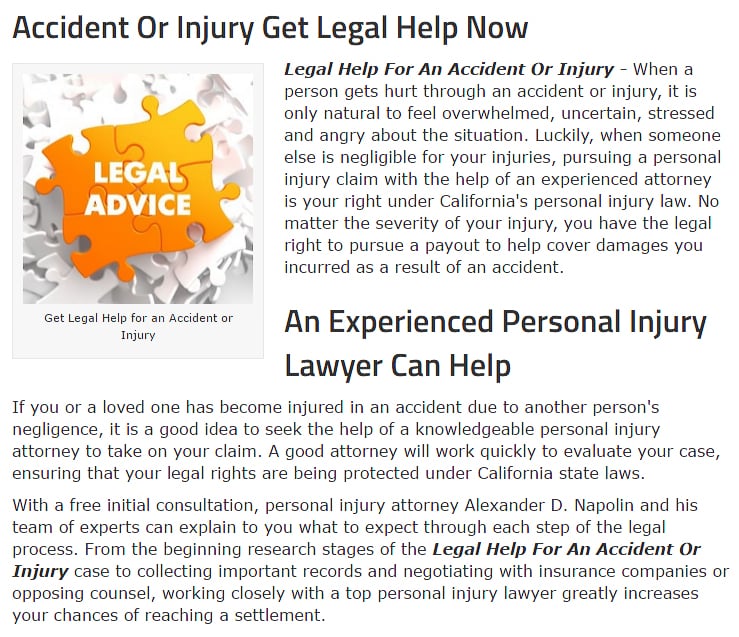Bad Faith Insurance Injuries
Bad Faith Insurance Legal Advice And Injury Tips

Bad Faith Insurance Claim
When you file an insurance claim with an insurance company, in any state, by law, that business owes you a duty to act in good faith. To put it simply, this means the insurance company should never look for ways to escape its duty to pay you or to investigate the claim. Doing so would constitute bad faith. Lawsuits and bad faith claims may originate from more or one of several actions or inactions by the insurance company from refusal of coverage and failure to negotiate a resolution.
Below are some of the typical reasons insurance companies get sued for bad faith insurance:
- Unwarranted refusal of coverage
- Failure to convey relevant information to the claimant
- Failed to conduct a reasonable investigation of the claim
- Did not pay the claim without investigating
- Have refused to pay the claim within a reasonable time period
Bad Faith Insurance Claim Lawyer
- Offering appreciably less cash to settle than the accurate value of the claim
- Denied coverage within a realistic time period
- Divulge in policy limitations, react to a time limit demand
- Failed to enter into negotiations for settlement of the claim
- Failed to provide a reasonable explanation for refusal of a claim
- No rational or reasonable resolution when liability is very clear.
Bad faith litigation can have many different variables in a lawsuit case with the inherent cases they come from, either bring about a settlement with an arbitration decision, the insurance company, or a court verdict. Each case is unique, including yours, and no one case will have just the same consequence as another.




